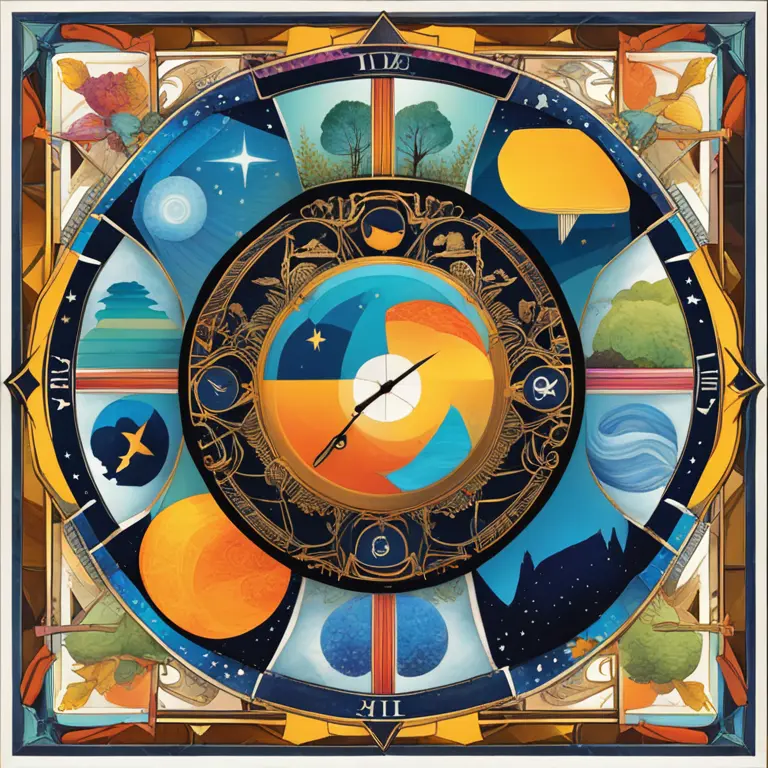
The Accuracy of Zodiac Signs: A Critical Look
An in-depth analysis of the precision of astrological zodiac signs and their role in personal and predictive profiling.
article by Priya Deshmukh
Astrology and Self-Discovery
Astrology has long been an avenue for self-discovery and foresight. Its roots penetrate deep into ancient cultures, where celestial changes were believed to influence earthly events. Today, the zodiac, comprising twelve distinct signs, serves as a guide to many in understanding personality traits, relationships, and forecasting life events. But how accurate are these zodiac signs? The pursuit to quantify their validity has inspired both curiosity and skepticism among scholars and enthusiasts alike. As we step into 2024, the relevance of astrology faces both growing interest and critical science-based scrutiny.

Scientific Perspective on Zodiac Accuracy
Modern science operates on empirical evidence, and in this context, zodiac signs often fall short of quantifiable accuracy. Critics argue that astrological predictions are too vague and tailored to be applicable to anyone, a phenomenon known as the Forer effect. Additionally, with new astronomical data, the astrological constellations no longer align as they did thousands of years ago. This, coupled with the addition of the 13th zodiac sign, Ophiuchus, challenges the traditional astrological models that many horoscopes for 2024 are based upon.

Cultural and Psychological Resonance
Despite scientific skepticism, astrology endures, offering cultural and psychological resonance for its proponents. Individuals find personal value in the way zodiac signs provide a framework for introspection and decision-making. Horoscopes provide a form of narrative or therapeutic value that can induce positive thinking and comfort, particularly as people contemplate the challenges and opportunities the stars predict for the coming years.

Personalization in Astrology
One might ponder, aren't birth charts more than just sun signs? Indeed, true astrological readings extend beyond the generic daily horoscope. They involve intricate charts that consider the exact time and place of birth, encompassing the positions of all celestial bodies. This level of customization lends a deeper, more personalized layer to astrological assessments, potentially increasing their accuracy in personal profiling and forecasts for times beyond the present year.

Astrology as an Evolving Practice
Astrology is not stagnant; it evolves with new insights and cosmic shifts. Astrologers adapt their readings and methodologies to account for societal and astronomical changes. As we continue through the 2020s, horoscope writers are tasked with interpreting these adjustments, be it the impact of digitalization on communication or the alignment changes of celestial bodies. Their accuracy, therefore, is a reflection of their adaptability and understanding of contemporary contexts.
The Balanced Perspective
In conclusion, while zodiac signs may not meet the scientific criteria for accuracy, they hold subjective significance that can't be quantifiably measured. As an intricate blend of ancient wisdom and modern lives, astrology serves those who seek guidance from the stars, remaining a testament to humanity's enduring search for meaning in the cosmos. The journey through zodiac signs offers a unique and personal narrative that many will continue to find relevant, especially as we navigate the unpredictability of upcoming years.
Published: 2/2/2024
Modified: 2/2/2024
More predictions
Come back here soon to learn more about yourself and your future


The Meanings of Astrological Houses: A Comprehensive Guide
Delve into the meanings of the twelve astrological houses and learn how they influence different aspects of our lives, from identity to career and beyond.


Your Home Horoscope: Celestial Timings for Property Purchase
Discover astrological insights to help you determine the best time to buy a house based on your zodiac sign. Tap into the stars for your home-buying journey.


The Influence of Astrological Houses on Your Birth Chart
Discover how the astrological houses in a birth chart shape your personality, life path, and destiny, playing a key role in your astrological profile.